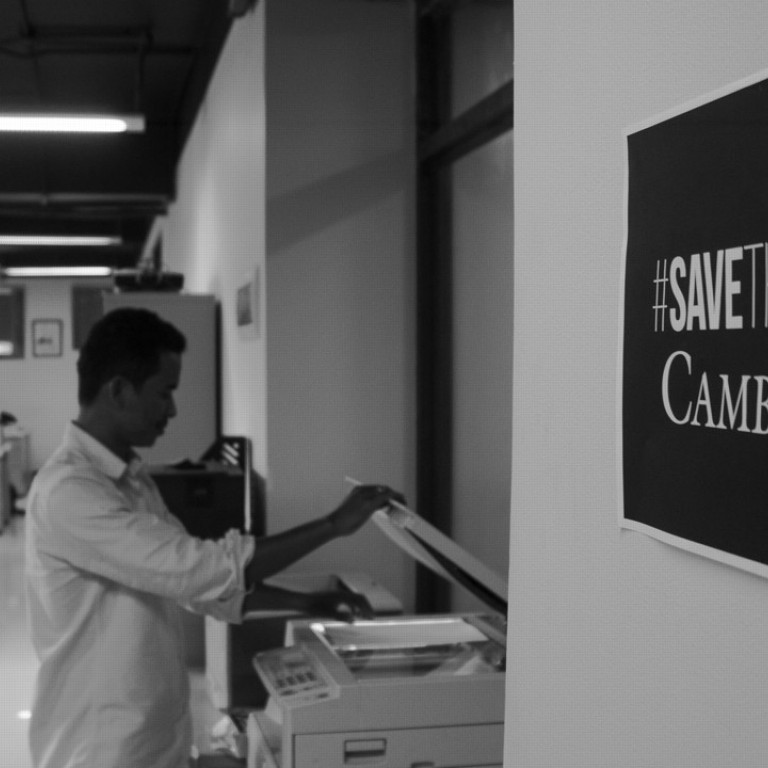
Is this the beginning of the end for Cambodia’s free press?
The Cambodia Daily is under threat after a massive government tax demand the newspaper says is a trumped up excuse to gag a voice of opposition
The first thing editor-in-chief Jodie DeJong told her staff at the Monday morning meeting was they were cleared to speak to the press. “Just stay away from politics,” she said, looking over their furrowed faces.
The Cambodia Daily – an independent newspaper – is embroiled in a tax dispute that looks likely to end its 24-year run on September 4. The massive bill is part of a crackdown on organisations the government says are not in legal compliance.
Auditing the Daily and finding it owed taxes must have felt like a victory for Prime Minister Hun Sen who said the paper “opposes me all the time” in a speech to the World Economic Forum in May.
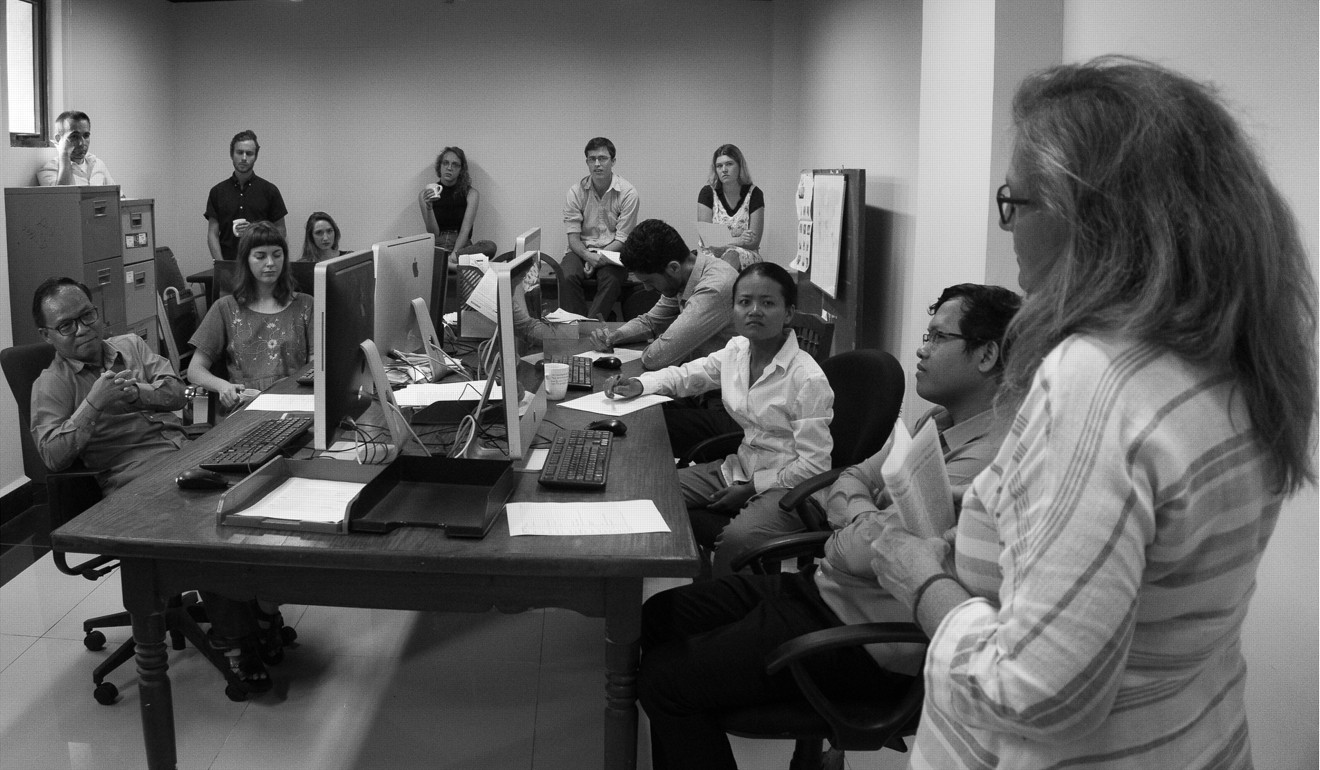
“Your grandparents and parents survived [the Khmer Rouge genocide] so that you can work for American radio and newspapers?” he added, chiding the newspaper’s local staff.
Kevin Doyle, who was the Daily’s editor-in-chief for 10 years, defended its editorial line.
“The Daily is known for fearless reporting. We thought it was necessary because people were frightened [to speak out] and we knew our role was to show that you should not be afraid.”
The tax department claims the paper owes roughly US$6 million – US$3.3 million in unpaid taxes and close to US$3 million more in interest. The figures are based on the government’s own audits without referring to the Daily’s books, which the paper made available, DeJong said.
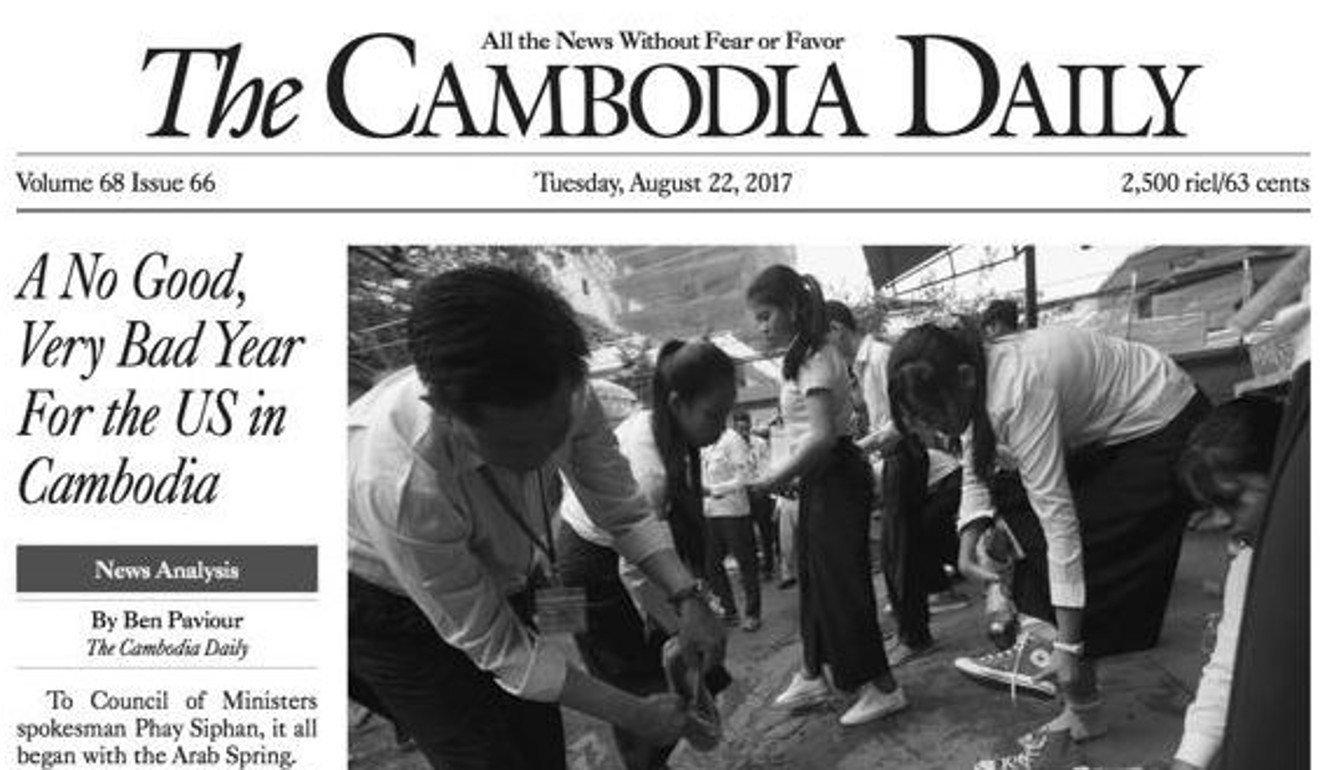
In late August, American-funded radio stations Voice of America and Radio Free Asia, and the independent Voice of Democracy, who broadcast in the local Khmer language, were silenced for airing “outside programmes without requesting authorisation”.
Council of Ministers Spokesman Phay Siphan called Voice of Democracy director Pa Nguon Teang a “foreign agent” in a report in The Cambodia Daily, echoing comments he made in February that Radio Free Asia and Voice of America were helping the opposition Cambodia National Rescue Party (CNRP) overthrow the government.
The Cambodian Centre for Independent Media, which runs VOD, said in a statement “that the action of the government to shut down independent media in Cambodia is politically motivated in preparation for the general elections scheduled for July next year”. The government has so far presented no evidence to back up its allegations.
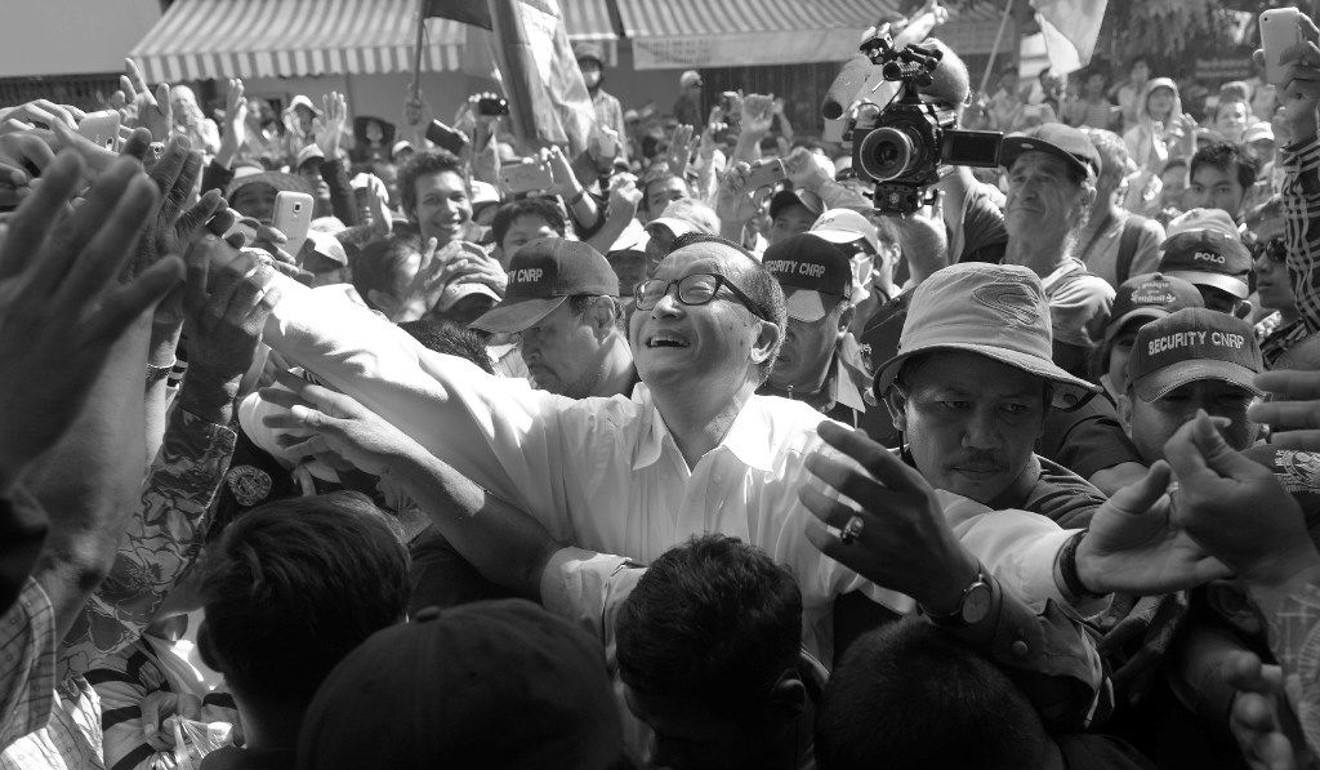
The ruling Cambodian People’s Party (CPP) is certainly rattled. While it won 70 per cent of the communes in the local elections in June, the popular vote was far closer showing the CPP only had a 6 per cent lead.
The result compounded paranoia the CPP has felt since it lost 22 seats in 2013’s general election – it’s largest loss ever – and faced months of mass protests. Since then the CNRP has been besieged.
Charismatic leader Sam Rainsy was exiled, his replacement Kem Sokha put under house arrest and two of their lawmakers were beaten on the street. Not to mention a litany of everyday harassment.
The fact the CNRP still gained 13 per cent on its commune results in 2012 despite these handicaps points to the possibility that the Cambodian people are turning away from Hun Sen – their strongman leader of 32 years – even the tuk tuk drivers who weave in and out of Phnom Penh’s hot traffic.
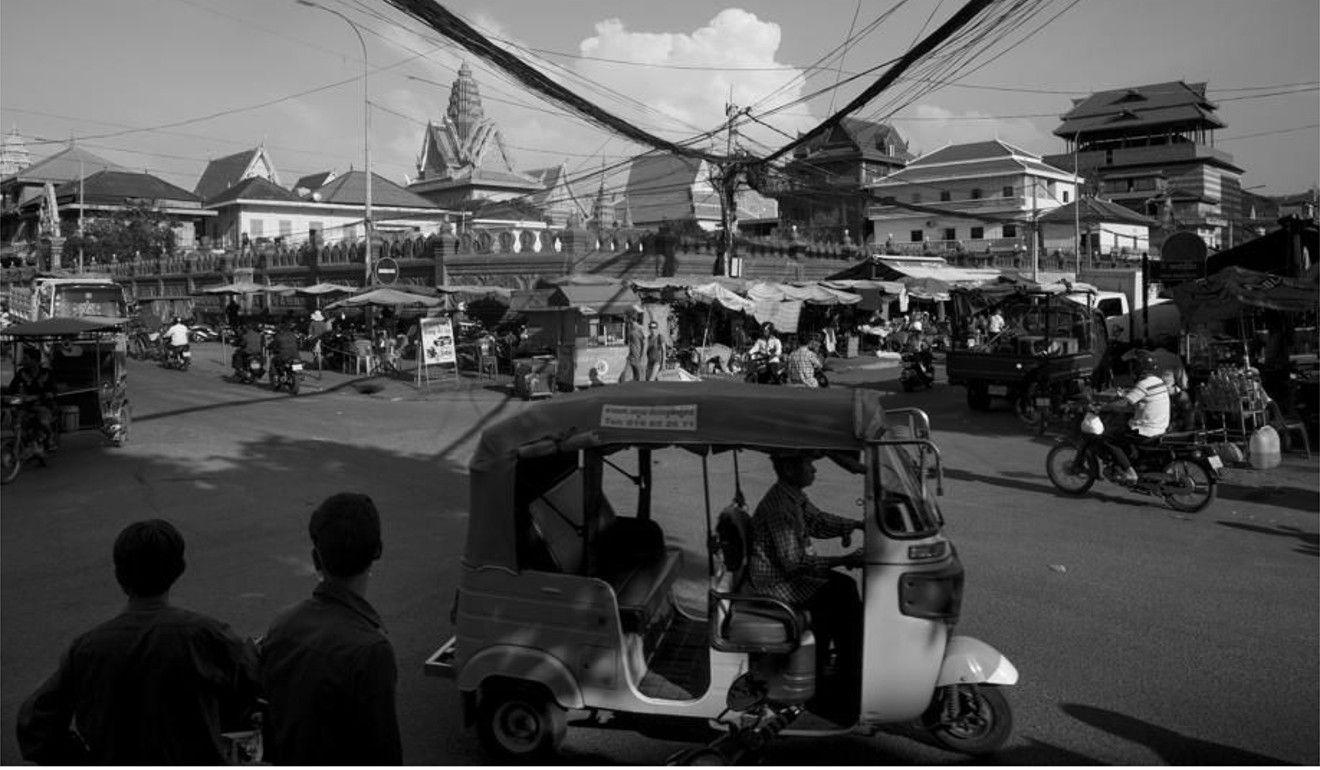
During June’s elections, tuk tuk drivers said they were offered US$5 each to join a CPP rally – a third of what they can expect to earn on a good day. “We refused the money” a group of four drivers said, wishing to remain anonymous. “Because we don’t like the CPP.”
In the countryside, the CPP’s traditional base, people are also turning away from Hun Sen. They may not have the education to understand the politics of Phnom Penh but they do understand the value of land.
Keen to develop Cambodia’s exports of sugar, rubber and palm oil, the CPP over decades has given roughly half of all arable land away in concessions.
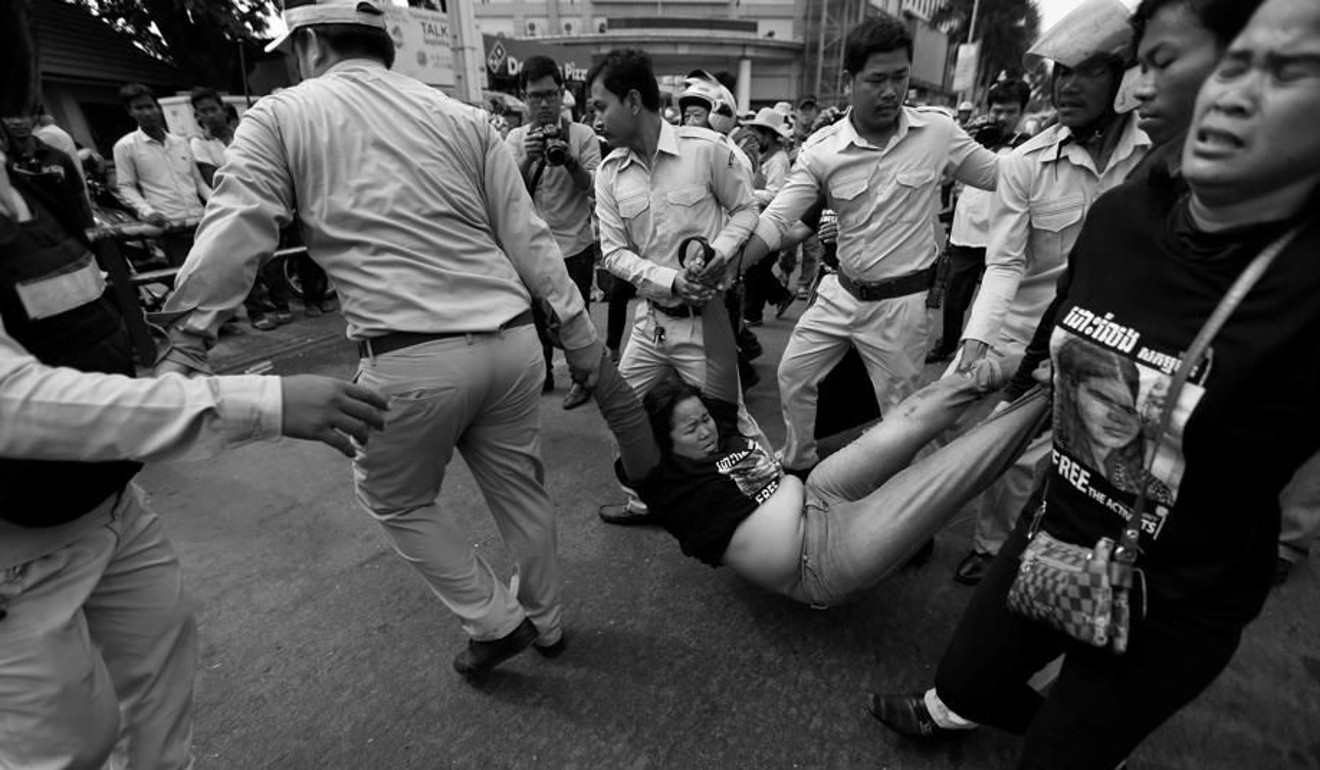
“Most land concessions have been granted without due process,” a 2015 open letter from Human Rights Watch said. “Including respect for the rights of the concerned persons ... pertaining to their eviction.”
Over half a million Cambodians have been affected by land grabs since 2000, according to a Radio Free Asia report. This week, more than 400 families were ordered off land next to a rubber plantation given to Hun Mana, Hun Sen’s daughter.
“The CPP’s idea is to win the election at all costs,” said Aun Pheap, a veteran Cambodia Daily journalist. “If there is no independent news and radio they can cheat [in the elections] easily because the international community will not hear about it.”
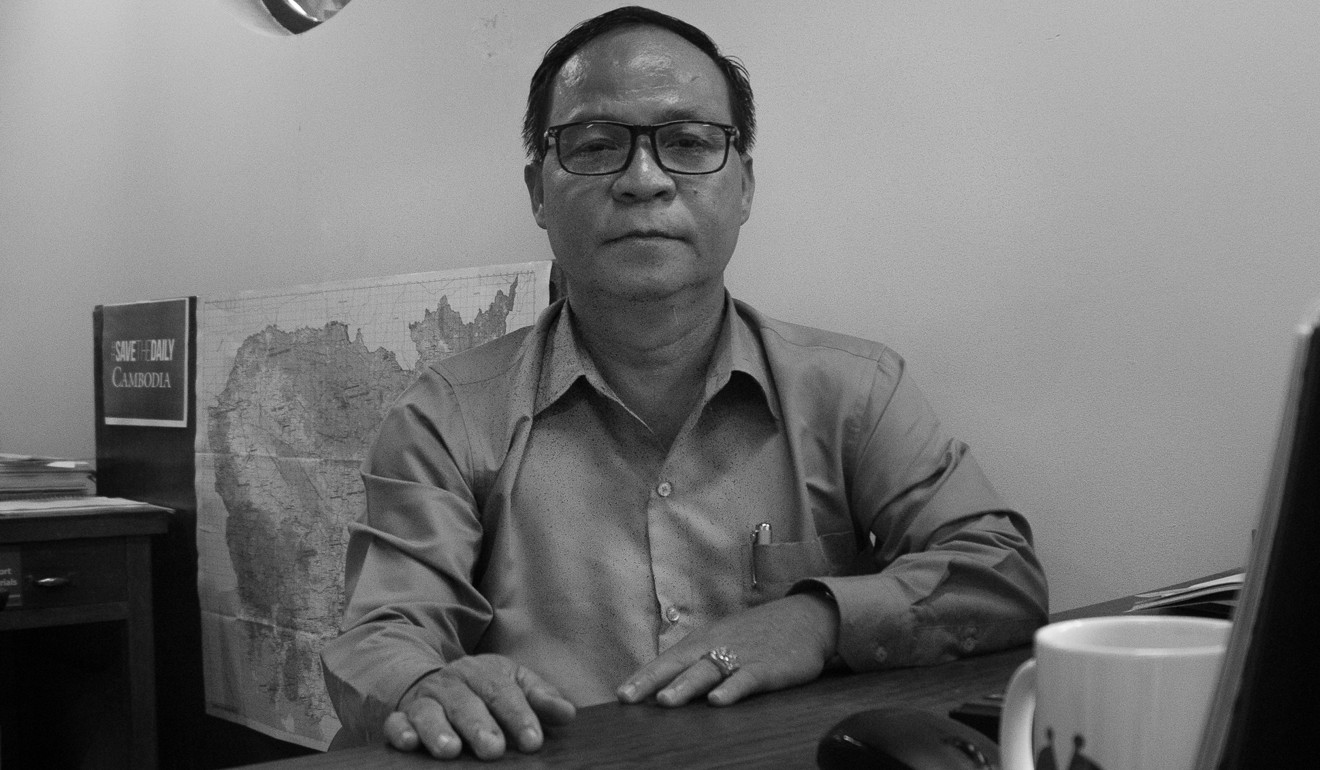
The campaign against the CNRP also continues. Now the opposition party is under investigation for trying to “start a colour revolution against the government” Minister of Interior Sar Kheng said on August 30.
The National Institute for Democracy, a US organisation that provided the CNRP with logistical training, was ordered to close on August 23 for not registering with the Foreign Affairs Ministry or the tax office and its foreign staff were expelled. Documents from its CNRP training days were leaked to show it had been helping the opposition with its plans for a revolution.
The NDI said it tried to register in September 2016 but was ignored.
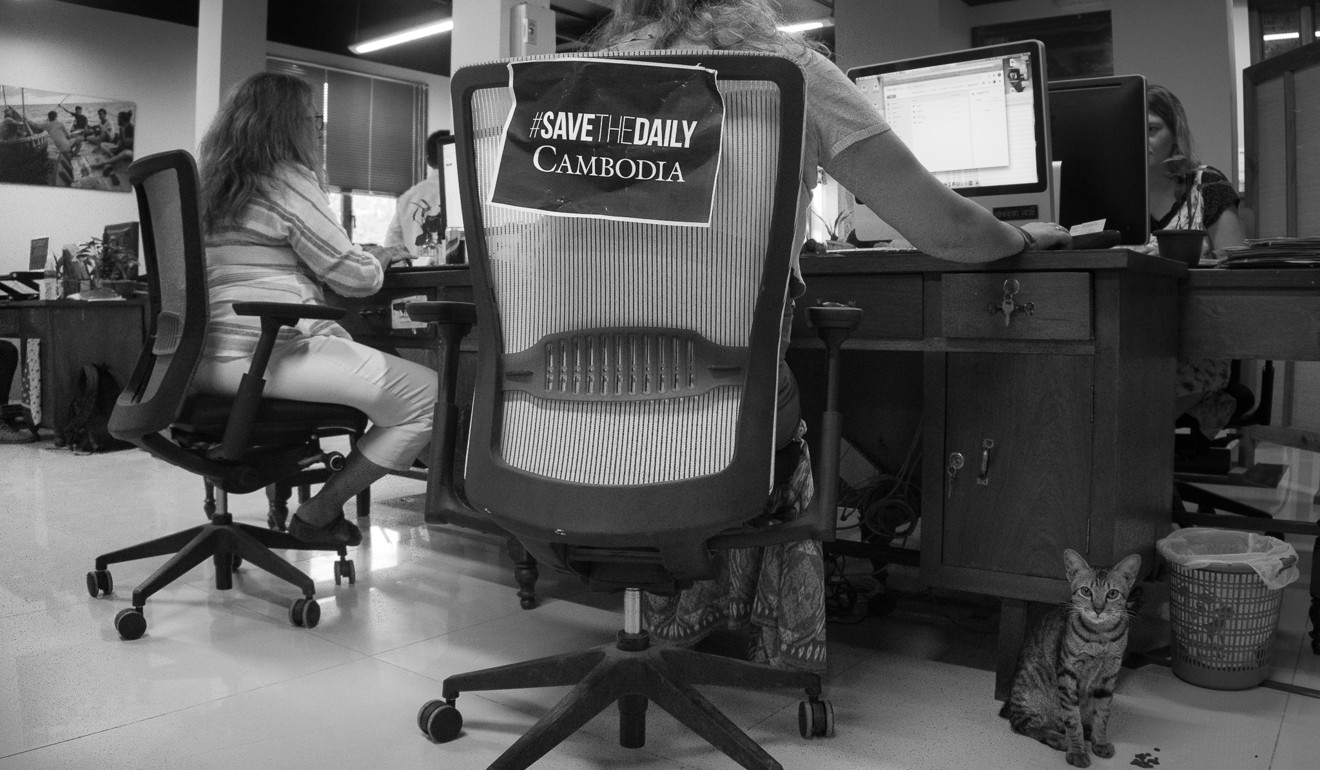
The US embassy in Cambodia has spoken out twice against “categorically false” allegations of a plot against the government. In a recent statement it said the NDI is “impartial” and offered training to the ruling Cambodian People’s Party as well as every other political party in Cambodia.
“Its current programme has helped improve government accountability ... and contributed to a more open and inclusive electoral process,” the statement said. The CPP has offered no evidence that the NDI has either failed to pay tax or conspired against it.
Nor has it looked at the Daily’s books or offered a chance for negotiations. A letter was sent addressed to the paper’s founder Bernard Krisher giving 30 days to pay – that too was leaked on Facebook.
The Daily has tried to open its books to make a payment but so far its requests have been ignored.
Nathan Thompson is a freelance journalist based in Cambodia. He has also served as vice-president and president of the Overseas Press Club of Cambodia.

